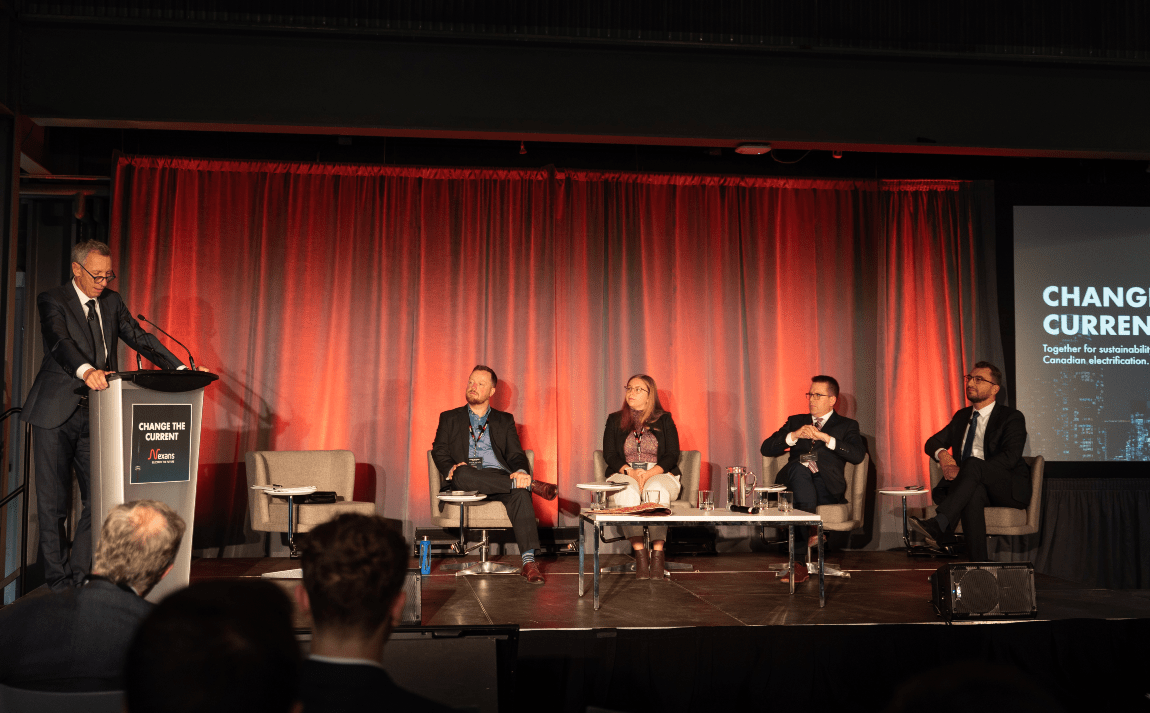- About Us
- Product Datasheets
- Products Overview
- Services and Solutions
- Newsroom
- Tools & Documents
-
Webinars
- Webinars
-
Webinars
- Overview
- Exploring Wire and Cable Used in Data Centres
- Exploring Wire and Cable Used in Healthcare
- Key 2024 CE Code Changes Impacting Wire and Cable
- Industrial Power Cables: Conductors in Shining Armour
- Sustainability In the Wire & Cable Industry
- Copper Demands and Recycling
- Wiring for Canadian Homes - Part 3
- Medium Voltage Solutions for Solar Applications
- Wiring for Canadian Homes - Part 2
- Wiring for Canadian Homes - Part 1
- Cable Manufacturing
- REEL Talk
- ULTRACKER Connected Reels Tracking Solution
- Installations 102
- Installations 101
- Copper & Aluminum: What You Need to Know
- Cables 101
- Raw Material Insights
- Renewable Energy - Wind & Solar Energy Trends
- Emerging Trends for Utility Cables
- Key 2021 Electrical Code Changes Impacting Wire and Cable
- Search
- Contact us
- Compare
- Sign in
CSR
Sustainability and electrification experts: Canada’s takeaways
Oct 4, 2022
Demand for electricity continues to grow across Canada, posing several challenges that could significantly impact Canadians. That’s the biggest takeaway coming out of a gathering of climate change, sustainability and net zero experts in Toronto last week, who discussed Canada’s uncertain future when it comes to renewable energy and electrification.
At Change the Current: Together for Sustainability through Canadian Electrification, host and organizer Nexans Canada challenged industry to join the company to make decarbonization a priority, and to address the opportunities and challenges Canada has before it when it comes to electrification.
Key takeaways from discussions about global copper scarcity and the circular economy, carbon neutrality, and renewable energy are:
- Canada’s climate targets require a switch from fossil fuels to electricity coming from renewable energy sources.
- Most products that use fossil fuels today will need to be electrified – vehicles, homes, offices, buildings, even planes, which will increase worldwide demand for copper. An EV requires about ten times more copper than a gas-powered vehicle.
- Copper is the backbone of electrification, however mined copper cannot meet anticipated demand. An industry-wide commitment to retrieving recycling copper cabling is required. This can be facilitated by designing products and buildings with end of life in mind so the metal can easily be recovered, recycled and reused (circular economy).
- It’s estimated demand for copper, one of the best conductors of electricity, will outstrip global supply in just two years. The U.S. is already consuming more copper than it is producing.
- Canadian copper can help address the impending global copper shortage and get Canada into the net zero grid race if industry’s commitment to retrieving copper is strengthened.
- Recycled copper is much more efficient in terms of greenhouse gas emissions than virgin copper.
- Outdated power utility infrastructure across Canada will be inadequate to support increasing demand for electricity, which is expected to more than double by 2050.
- Governance, administration and regulation of electricity systems are lacking.
- In general, existing electrical infrastructures are simply maintained, not expanded or upgraded for future demand
- Some utilities are already implementing net zero into their planning function
- Sophisticated stakeholder understanding and public engagement is essential in gaining support for investing in massive capital expenditures that will take Canada to 2050 and beyond.
Watch the replay:
Our websites
Select your country to find our products and solutions
-
Africa
- Africa
- Ghana
- Ivory Coast
- Morocco
- North West Africa
- Americas
- Asia
- Europe
- Oceania
